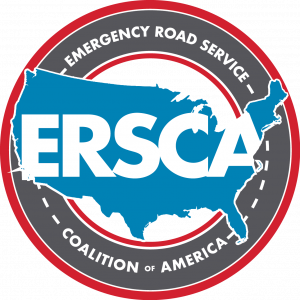ERSCA – Urgent Update on Federal Legislation
ERSCA - Urgent Update to Federal Legislation

APTO has teamed up with the Emergency Road Service Coalition of America (ERSCA) to represent towers across the nation in Washington, D.C. A recently proposed amendment to the Federal Infrastructure Bill (HR 3684) could have devastating impact on the towing industry. The amendment removes a specific federal protection for towers that threatens to impact profitability, liability and the enterprise value of towing and recovery companies in every state. To donate to the cause please click here.
The amendment to 49 USC 14501 would effectively broaden the scope of what a state is permitted to regulate (i.e. rates, routes, services). This would allow states to set up rate-regulated regimes for tows that are both consensual and non-consensual.
AMENDMENT LANGUAGE (as printed in the Congressional Record—Senate)
SA 2470. Ms. SINEMA (for herself and Mr. KAINE) submitted an amendment intended to be proposed to amendment SA 2137 proposed by Mr. SCHUMER (for Ms. SINEMA (for herself, Mr. PORTMAN, Mr. MANCHIN, Mr. CASSIDY, Mrs. SHAHEEN, Ms. COLLINS, Mr. TESTER, Ms. MURKOWSKI, Mr. WARNER, and Mr. ROMNEY)) to the bill H.R. 3684, to authorize funds for Federal-aid highways, highway safety programs, and transit programs, and for other purposes; which was ordered to lie on the table; as follows:
At the appropriate place in title III of division B, insert the following: SEC. 23lll. FEDERAL AUTHORITY OVER INTRASTATE TRANSPORTATION. Section 14501(c)(2)(C) of title 49, United States Code, is amended by striking ‘‘performed without the prior consent or authorization of the owner or operator of the motor vehicle’’.
For the towing and recovery industry, this means each individual state may regulate all aspects of the towing industry for any type of towing including price (rate regulations), routes, and services (operations regulations). While the amendment specifically removes protection against states regulating price, routes and service for non-consensual towing operations (i.e. police towing), no other federal protection will remain. In essence, states can regulate any and all aspects of towing operations for any and all types of towing.
The threat the industry faces is that organized opponents of the towing industry will pursue new laws and regulations, state-by-state, similar to previous national efforts like “predatory towing”, “consumer protection”, and “price gouging” laws. In the past, these efforts yielded increased criminal and civil liability, regulated pricing, increased regulations, and never result in favorable outcomes for towing and recovery companies. Organizations like OOIDA and NCOIL have already created national model legislation with specific emphasis on price regulation for all types of towing including police towing (non-consensual). Without the federal protection currently in place, the industry faces a threat in every state that will impact profitability, liability and the enterprise value of towing and recovery companies.
Take for example the regulatory scheme in Ohio for private property towing. The elements of the regulation include:
- Signage requirements
- Locations requirements of the storage facility (25 miles from the tow, lighting, located near public transportation, etc..)
- Rate regulation (PUCO now establishes the rate)
- Allows municipalities to license towing companies
- Mandatory drop and pay half fee requirement
- Mandatory photographs and record keeping
- Time limit to deliver a vehicle to the storage facility
- Owner/Lienholder notification requirements (police and sheriff assume the responsibility for notifications for non-consensual police tows)
- Providing vehicles owners notification they can sue towing companies when they retrieve the vehicle
- Civil actions against towing companies, included removal of CPCN
These are all examples of the types of laws, rules and regulations that could be applied to non-consensual towing if the amendment is passed. OOIDA and NCOIL have both stated that price regulation is a top priority. The proposed amendment will give them the ability to pursue “price gouging” and “predatory towing” laws in each state.